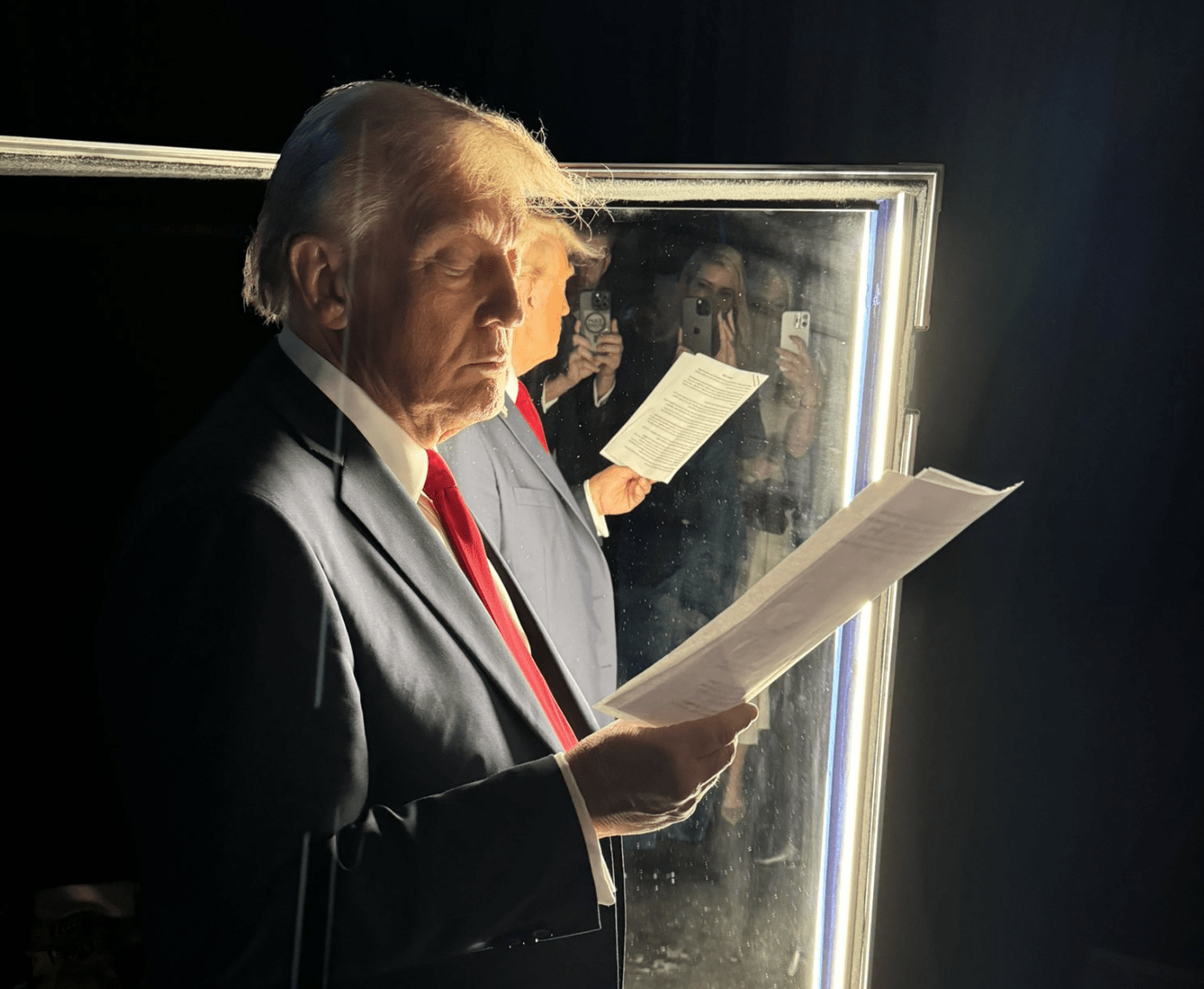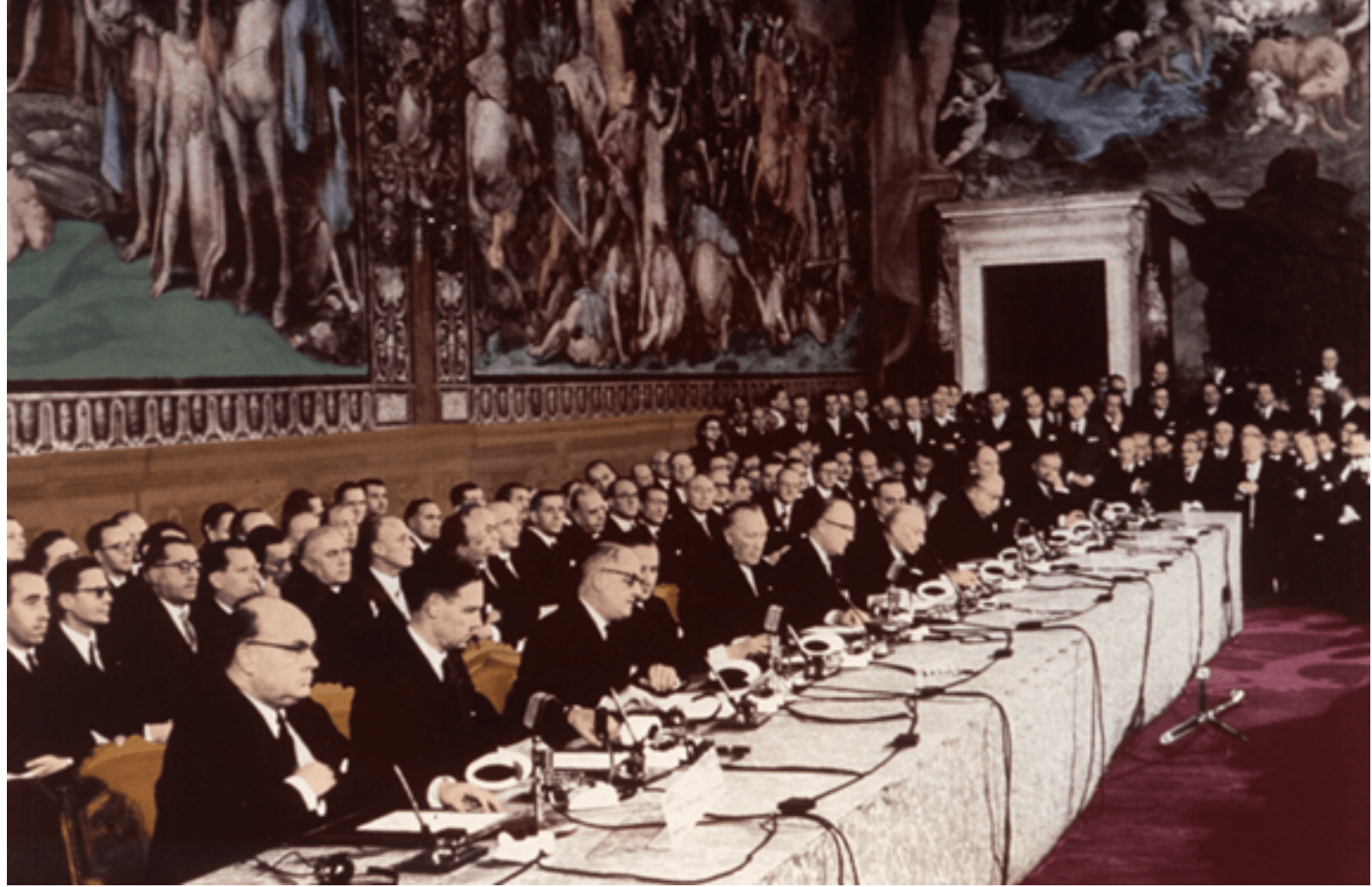What Trump’s Re-Election Reveals about the Nature of the European Union
The narrative of the EU as a peace project is that it allowed Europeans to reject military investments on the basis of the excuse that we were living in a post-war society. This is not true.

Europeans need to do some serious soul-searching after the outcome of the US election. Rather than focusing only on Donald Trump’s return to the White House, we need to become honest about our history.
While it may be convenient that the European Union is a peace project and that Europeans are post-war, this is a dangerous lie that does not do justice to European history.
European powers have been engaging in warfare long after becoming members of the EU and after having lost one of our military powerhouses with Brexit, Europeans have to become serious about their own security.
Panicking about a return to isolationism in America reveals seventy years of irresponsible dependence on a foreign power for our own security.
This is not a standalone incident, but rather a continuity in thinking about policy on the European continent. Think back to Russia’s brazen invasion of Ukraine that laid bare European countries' energy dependence on Russia. Our American counterparts had repeatedly warned us about the dangers involved.
Why are we in this predicament? In a speech I gave just months after Russia’s invasion in 2022, I suggested that this is due to Europeans not understanding their own history.
European leaders are eager to point out that European unification was essentially a peace project. The story goes as follows.
The EU was born out of the devastation of WWII, based on the idea that war within the heart of Europe was no longer possible because swords were turned into plows. German Chancellor Helmut Kohl once famously said that “the most important rule of the new Europe is: there must never again be violence in Europe.”
While I do not wish to undermine the enormous achievement of the European project in essentially rooting our violent conflict within its own borders for the EU received the Nobel Peace Prize in 2012, the narrative of Europe as a peace project is highly problematic.
Whilst this narrative tells a story of learning and progress, it is not that simple. Yale historian Timothy Snyder reminds us that the process of European unification was based on “fading empires, exhausted by their colonial efforts”.
As colonial empires became too costly to maintain, other markets had to be found and exploited. As European nation-states withdrew from their colonies from the 1940s through the 1980s, they created a ‘soft landing after empire’ that allowed them to reinvent themselves.
This all while still fighting colonial wars in Algeria, Indonesia, and so on. The narrative of the EU as a peace project thus proved a useful distraction that allowed European countries, with the exception of West Germany, not to fully come to terms with the dark periods in their past and the legacy of the empire.
Now some of the sentiments of exclusion and superiority are back in our politics, but in fact, the reality is that they never left.
A second problem with the narrative of the EU as a peace project is that it allowed Europeans to reject military investments on the basis of the excuse that we were living in a post-war society, and made ourselves dependent on the American security umbrella. The idea that creating economic interdependence had fostered peace in Europe was also the key prism through which one would view external relations.
After the collapse of Communism, Europeans, like many others in the West, viewed ‘their liberal order’ as victorious. The notion that in Francis Fukuyama’s words, history had ended, lulled the EU into a naive belief about the predictability of world events. Ultimately the fall of Communism would lead to global progress, to more capitalist and therefore more democratic states.
In this mindset, trade with third countries would ultimately bring about political change. It became the EU’s soft power, the ability to shape external relations through reputation and values (soft power), rather than hard power relying on military force. The complacency about the need to protect the EU’s core values was brutally disrupted by the Ukrainian war, and the subsequent war in the Middle East.
Where does this leave Europe? Polling by Ivan Krastev and Mark Leanard of the European Council of Foreign Affairs suggests that European citizens understand the need for more security and foreign affairs cooperation at the EU level to deal with the growing geopolitical challenges.
The question is if national government leaders throughout member States feel the same and allow the EU leaders to meet at this moment. So far, fragmentation rather than unity has been the name of the game when it comes to common foreign and security policy at the European level. Regardless of what happens in the end, it is crucial that Europeans understand their past better; that the European project is not only a peace project, but that we have continued to fight wars. If this is our reality why would we not be responsible for our own security?
More knowledge of our past will also allow us to know better where to go in the future. In the words of English author G.K. Chesterton from 1993: “History is a hill or a high point of vantage, from which alone men see the age in which they are living.”

While I do not wish to undermine the enormous achievement of the European project in essentially rooting our violent conflict within its own borders for the EU received the Nobel Peace Prize in 2012, the narrative of Europe as a peace project is highly problematic
IEP@BU does not express opinions of its own. The opinions expressed in this publication are those of the authors. Any errors or omissions are the responsibility of the authors.
